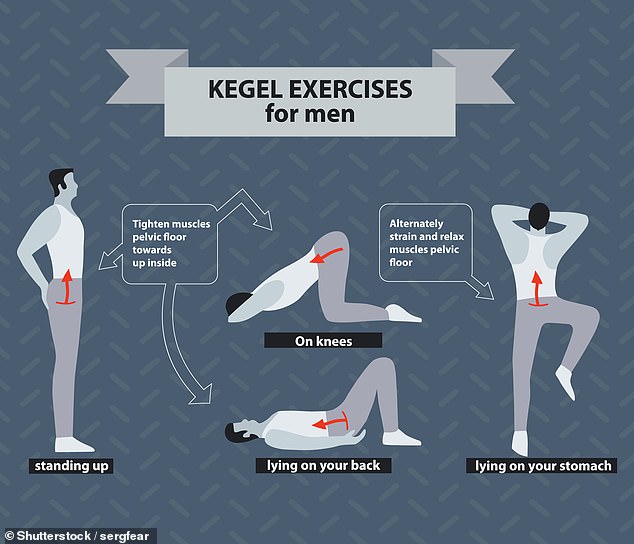Eating a Mediterranean-style diet could help boost sexual function in both men and women, new research has suggested.
Healthy dietary patterns have been widely shown to play a critical role in the prevention and management of various chronic diseases, from inflammatory bowel disease to arthritis.
Now, Chinese researchers have discovered that people who follow the diet – which features healthy fats, lean proteins and fruits and vegetables naturally high in polyphenols and antioxidants – are more likely to have stronger pelvic floors, and as a result, better sexual health.
Analysing data collected from 31 studies to determine the role of diet in pelvic floor health, researchers found that those who ate an anti-inflammatory diet had improved sexual function and reduced incontinence symptoms.
A pro-inflammatory diet – high in refined carbohydrates, saturated fats and ultra-processed foods – however was linked with an increased risk of pelvic floor dysfunction (PFD), an umbrella term for conditions characterised by weak or damaged pelvic floor muscles, including sexual dysfunction and incontinence.
It is estimated that around 14million people in the UK suffer from incontinence problems, and over half of women experience sexual problems, including pain during sex and difficulties climaxing.
However, up until now, the role of diet has been largely overlooked, with interventions focusing on physical therapies such as kegel exercises.
Anti-inflammatory diets, which are naturally high in antioxidants and omega-3 fatty acids, have previously been linked to better sexual function, whilst diets high in salt have been shown to worsen overactive bladder symptoms.

A Mediterranean-style diet has long been hailed as the secret behind Italians and Spaniards living long and healthy lives
But now researchers have traced the problem back to inflammatory diets – which can place chronic strain on the pelvic floor muscles, resulting in pain and discomfort during sex.
Publishing their findings in the journal Frontiers in Nutrition, the researchers explained: ‘The Mediterranean diet’s unique composition – rich in olive oil, nuts and polyphenols – also directly improves endothelial nitric oxide production,’ which plays a crucial role in erections.
‘This dual mechanism explains why its impact on sexual health may be greater than that predicted by general anti-inflammatory indices, which are less sensitive to these specific pro-vascular effects,’ study co-author Professor Min Li added.
In terms of the urinary symptoms associated with PFD, the researchers hypothesised that he benefits of healthy dietary patterns may be more strongly mediated by weight loss, than for sexyal dysfunction.
This is because excess body weight increases intra-abdominal pressure, placing strain on the pelvic floors muscles and bladder.
So any diet that promotes weight loss, and in turn alleviates mechanical stress on the bladder, is likely to improve symptoms.
The researchers concluded: ‘This dual benefit suggests that for urinary symptoms, targeted interventions addressing specific pathways and broader factors, like obesity, are both clinically valuable.’
However, they acknowledged that their study has its limitations, with the observational nature of the studies making causal inferences difficult to make.

Kegels aren’t the only option. Any kind of core strengthening—Pilates, yoga, barre, squats—can help strengthen, lengthen and relax these muscles, boosting pelvic floor health

Pelvic floor strength is usually framed as a women’s health issue, even though around one in five men over the age of 65 will experience pelvic-floor related urinary incontinence,
Not all studies included in the final review adjusted for body mass index (BMI) or other measures of excess fat, meaning that its plausible that the observed relationship between diet and PFD could simply be the result of a change in body weight, rather than diet type.
However, they concluded: ‘Our findings provide robust, evidence-based guidance for clinicals to recommend anti-inflammatory dietary strategies, especially for patients with concurrent metabolic risk factors, to improve pelvic floor health.’
The pelvic floor is a group of muscles that support important internal organs like the bladder, urethra, anus – and in women – the uterus, cervix, and vagina. These muscles help keep the pelvic organs in place and sustain bladder and bowel control.
For men, the pelvic floor is especially important for sexual and urinary function – with muscle contractions controlling erection and ejaculation.
Pelvic floor dysfunction covers a range of symptoms including urinary incontinence, problems emptying the bladder, faecal incontinence, sexual dysfunction and abdominal or pelvic pain.
Pelvic floor disorders can occur as result of childbirth, obesity, age, genetics and host of other factors – such as high impact workouts which put a lot of pressure on these muscles.
Despite this, pelvic floor strength is usually framed as a women’s health issue, even though around one in five men over the age of 65 will experience pelvic-floor related urinary incontinence, and as many as 16 per cent will live with chronic pelvic pain.
To strengthen the pelvic floor and maintain muscles, many experts will recommend kegel exercises which involve squeezing the muscles quickly – as if you are trying to stop yourself from urinating – holding the squeeze, and then relaxing.
Over time this can help strengthen these muscles, reducing the risk of leaks and sexual dysfunction.
Other core-strengthening workouts like pilates and squats can also help, though experts stress it is crucial to be able to relax these muscles too through targeted stretches and mobility work to improve pelvic floor function.
Source: bing.com



















